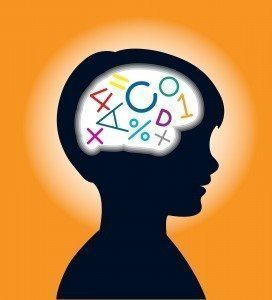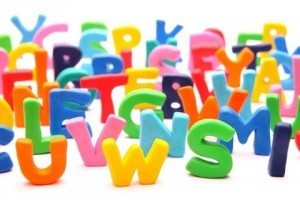Educational Testing
Language, Motor, and Processing IssuesChildren who have difficulty with learning often have a weakness in a certain area. There are several tests that can help identify these weaknesses. These tests can provide valuable information about what may be at the root of a child’s learning challenges. The professional evaluating your child should discuss the testing process with you and your child separately. Both should prepare the child so that the evaluation is a positive experience. The type of tests your child might undergo will depend upon their area of weakness.
Commonly used tests examine the following skills:
- Language – Difficulty in comprehension and communication

- Motor:
Fine – Difficulty in small movements like writing and tying shoes
Gross – Difficulty in large movements like walking and kicking - Processing – Problems with memory
Language Skills
Peabody Picture Vocabulary Test–IV (PPVT–4)
- This test measures: The ability to understand what is being said.
- The students are shown a series of pictures. They are asked to point to the picture that describes the word they have been given by the tester.
- The scores reflect how well spoken language is understood.
Clinical Evaluation of Language Fundamentals (CELF-5)
- This test measures: The ability to understand language and to express thoughts.
- The children are shown pictures and asked to talk about them.
- Score results that do not conform to the norm for the child’s age may indicate problems with language comprehension and expression.
Expressive One-Word Picture Vocabulary Test
Receptive One-Word Picture Vocabulary Test
- These tests measure: The ability to understand language and communicate verbally.
- In the expressive test, the children are asked to use one word to describe a variety of objects, actions and concepts. In the receptive test, they are given words and are asked to select pictures that best depict them.
- Low expressive scores indicate difficulty in getting their message across to others.
- Low receptive scores indicate difficulty grasping what others are saying.
Motor Skills
Beery-Buktenica Developmental Test of Visual Motor Integration (Beery VMI)
- This test measures: Visual and motor skills.
- The child is asked to copy geometric designs.
- A low score suggest problems with fine motor skills and hand-eye coordination.
Peabody Developmental Motor Scales (PDMS-2)
- This test measures: Motor skills of young children up to 5 years old.
- Depending on the child’s age they are asked to complete a series of activities to test age related motor abilities.
- A low score may point to a condition such as Dyspraxia, a common disorder affecting motor skills.
Processing Skills
Rey-Osterrieth Complex Figure (ROCF)
- This test measures: Perception of geometric objects, figures and their relationship to each other in space and memory.
- The child is given picture cards. First they are asked to copy the figure and then to draw it from memory.
- The scores reflect how the child perceives objects in space. The result may also indicate challenges with memory, attention, and planning.
Children’s Memory Scale (CMS)
- This test measures: Attention, concentration, and memory skills.
- The child is given a range of memory-related challenges, such as remembering what has been read aloud or shown.
- Poor memory skills may point to learning or attention issues. Identifying specific memory problems can help with the creation of strategies in conjunction with the child’s school.

NEPSY Developmental Neuropsychological Assessment–II
- This test measures: A broad range of thinking and problem-solving skills.
- The child is tested in seven general areas that affect learning: Attention, language, sensory/motor, spatial, learning and memory. The assessment also tests Social Perception, the ability to recognize emotions and to express empathy.
- Low-scoring sections of the test can point to specific areas where help may be needed.
Benefits of testing
Testing will help parents and teachers create a plan to address the child’s challenges, whether they are Processing, Motor, or Language Skills.
Contact us
Ask us any education related question or give us a call. The first 30 minutes are free.
SchoolAdvice
Corporate Headquarters 900 rue Lacasse, B-111 Montréal, QC Canada, H4C 2Z3
Email: [email protected]
Telephone: 514.350.3519 | 888.509.7202
Corporate Headquarters 900 rue Lacasse, B-111 Montréal, QC Canada, H4C 2Z3
Email: [email protected]
Telephone: 514.350.3519 | 888.509.7202
SchoolAdvice
‘Bringing Families & Schools Together’
Corporate Headquarters 1001 rue Lenoir, B-111 Montréal, QC Canada, H4C 2Z6
- Privacy Policy
- Email: [email protected]
- Telephone: 514.350.3519 | 888.509.7202
- SchoolAdvice Blog
Business Services
[et_bloom_inline optin_id=”optin_2″]
Copyright © 2020 SchoolAdvice Inc. Powered by our partners, Sparrow Digital Inc.
